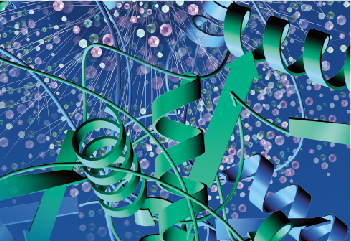The COP9 signalosome complex (CSN) regulates protein degradation by controlling the function of cullin-RING-ubiquitin-ligases (CRLs). The complex is conserved throughout evolution and in higher organisms it consists of eight subunits, termed CSN1 to CSN8, in order of decreasing molecular mass. Deregulation of the CSN and its interactions can exert dramatic effects on diverse cellular functions, including DNA repair, cell cycle control, angiogenesis, and microenvironmental homeostasis, all of which are critical for tumor development. We recently discovered a multilevel complexity in CSN regulation involving modulation of the complex’s localization and adjustment of post-translational modifications, thus enabling rapid adaptation and response to DNA damage. We are combining native mass spectrometry methods with biochemistry and cell biology to determine how adaptation to cellular stimuli influence the interactions formed between CSN and specific cullin-RING E3 ligases and what is the subsequent impact on the protein substrates targeted for degradation.



